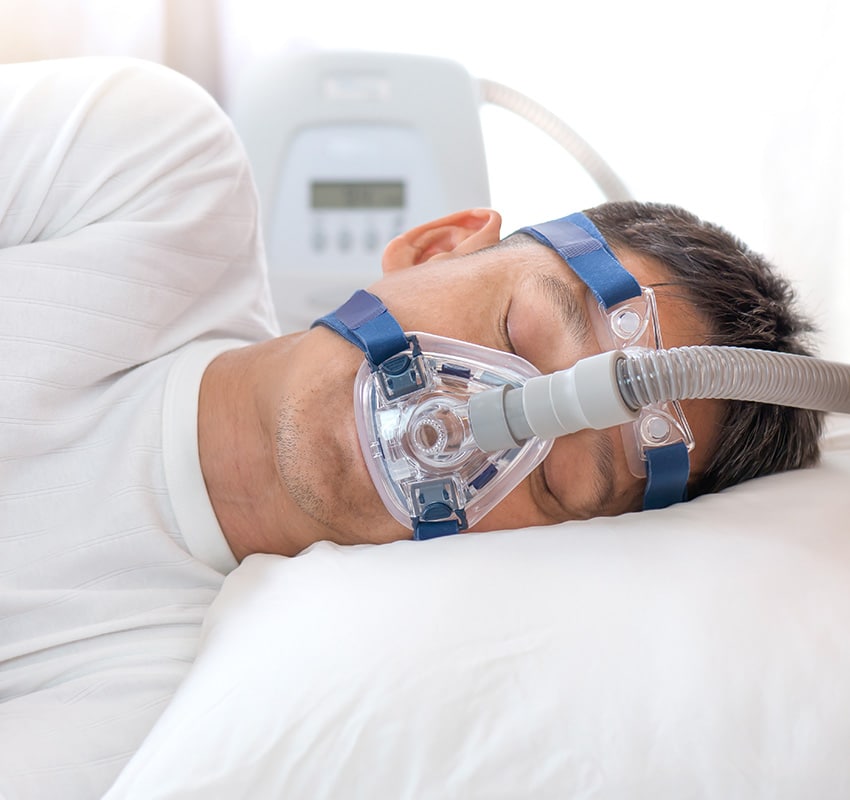Sleep Apnea Targeting Solutions
Sleep apnea is a potentially serious sleep disorder. It causes you to stop and start breathing while you’re asleep. There are three types of sleep apnea: obstructive, central, and complex (or mixed) sleep apnea. The most common type is obstructive sleep apnea, or OSA. With this condition, your airway gets blocked during sleep. This can happen hundreds of times each night if it’s not treated.
Sleep apnea is a common disorder that occurs when breathing stops during sleep. During an episode of sleep apnea, the muscles in your throat relax and block your airway so you stop breathing for short times. When this happens repeatedly throughout the night, it can lead to serious health problems.
Sleep apnea is often associated with loud snoring, but not everyone who snores has this condition. Sleep apnea also can be diagnosed by measuring oxygen levels—when there’s an airway blockage, the amount of oxygen in your blood will drop as you struggle to breathe. This may cause arousal from deep sleep so that you do not achieve enough restorative sleep each night (this is called “hypopnea”).
If you have Sleep apnea you may have trouble sleeping, even if you feel sleepy. You may also have these symptoms:
- Snoring
- Unexplained fatigue
- Headaches or dizziness upon waking up
- Morning headaches or other problems with thinking clearly throughout the day
Your doctor can diagnose sleep apnea using the results of a physical exam and tests such as an electrocardiogram (EKG), blood pressure measurement, chest x-ray, polysomnography (sleep study), or home monitoring device—which records sounds made while sleeping. If you have severe symptoms of OSA, treatment should begin right away so that you can get a good night’s rest every night.
The cause of sleep apnea is a blockage in the throat. The blockage is caused by excess tissue that narrows the airway, or it can be caused by the tongue falling back into the throat during sleep. Sometimes, defects in your nose and airways may cause sleep apnea as well.
If you have sleep apnea and aren’t sure what causes it, talk to your doctor about whether they can help you figure out what might be causing this condition. If they recommend treatment options for people with obstructive sleep apnea (OSA), then here are some of them:
- Nasal devices to keep nasal passages open during sleep
- Oral appliances/mandibular repositioning device (MAD) worn at night to move lower jaw forward
Obstructive sleep apnea (OSA) is a condition where there is a blockage of the upper airway during sleep. It can be caused by many different things including large tongue, large tonsils, a large uvula, or small jaw. In some cases it may be caused by obesity or even a deviated septum.
Central sleep apnea is when the brain stops sending signals to breathe during sleep. People with central sleep apnea have trouble breathing and may wake up gasping for air. The body responds to central sleep apnea by increasing its rate of breathing, which can lead to more severe problems such as heart failure and stroke.
Central sleep apnea is rare compared with obstructive sleep apnea, but it does occur in about 10% of people with obstructive sleep apnea. Central sleep apnea tends to occur more often in older people who have neurological disorders such as Parkinson’s disease or Alzheimer’s disease.
If you are experiencing any of the following symptoms, it may be time to talk to your doctor about sleep apnea:
- Excessive daytime sleepiness
- Snoring (especially with pauses in breathing)
- Irritability during the day, especially in the morning or when waking up in the middle of the night
- Feelings of fatigue throughout the day and trouble getting up in the morning due to not feeling well-rested after sleeping all night
- Mood swings that seem out of proportion for a particular situation and/or personality type
We all know that people research their symptoms and research medical conditions online prior to attending medical appointments. Looking for prevention, treatments, alternative therapies, medications, ways to manage symptoms and the likelihood of recurrence are just some of the frequently searched terms. This advertising is ideal for companies such as pharmaceutical companies, alternative therapies and healthcare providers looking to reach individuals suffering from Sleep Apnea.
Health Targeting is in our DNA
Since 2012, we’ve been the leader in Health advertising. Healthy Ads can deliver Health Targeting across publisher content in Real Time.
Reach Individuals with Sleep Apnea
We offer the ability to advertise on pages next to articles about Sleep Apnea. We know that people looking at content related to Sleep Apnea either suspect they or someone they know has it. They are also most probably about to go out to discuss their Sleep Apnea symptoms with their doctor and be provided with information about treatment or management options. This is an ideal time for Direct to Consumer Advertising (DTC) for Sleep Apnea.
Sleep Apnea Targeting Solutions
Realtime Sleep Apnea Health Targeting
Our Realtime Sleep Apnea Targeting option allows an advertiser to run their advertising next to Sleep Apnea webpages as the researcher looks at the page. This is the ultimate solution for advertising Sleep Apnea treatment options. We can run this type of contextual targeting across our own Managed Supply, our Curated Supply and via a Media Plan via Managed Services.
Popular Sleep Apnea Searches
We see a wide range of Sleep Apnea searches each month. The top twenty searches related to Sleep Apnea include;
- Sleep Apnea
- Sleep Apnea symptoms
- Obstructive Sleep Apnea
- What is sleep Apnea
- Sleep Apnea machine
- What causes Sleep Apnea
- Sleep Apnea test
- Sleep Apnea mouth guard
- Sleep Apnea surgery
- Sleep Apnea mask
- Sleep Apnea pillow
- Sleep Apnea treatments
- Types of Sleep Apnea
- Sleep Apnea cures
- Medication for Sleep Apnea
- Sleep Apnea in children
- Snoring and Sleep Apnea
- Hypopnea
- Central Sleep Apnea
- Sleep Apnea Dr near me
Health Targeting Categories
Discover a wide range of Health Targeting Categories based on Contextual Targeting for your next Advertising Campaign or Programmatic Deals. Explore our offerings in Medical Conditions, Healthy Lifestyle, Chronic Diseases, Infections, Sports, and General Health to reach your desired audience at scale effectively.











